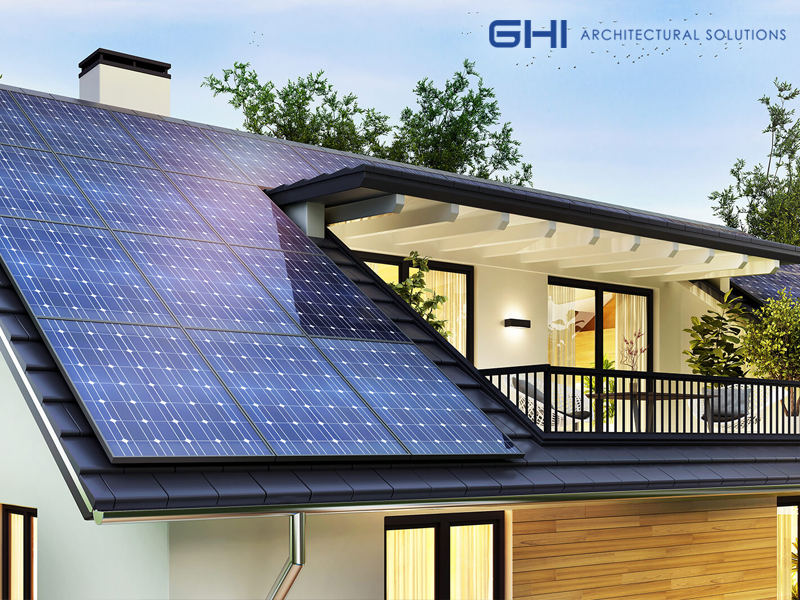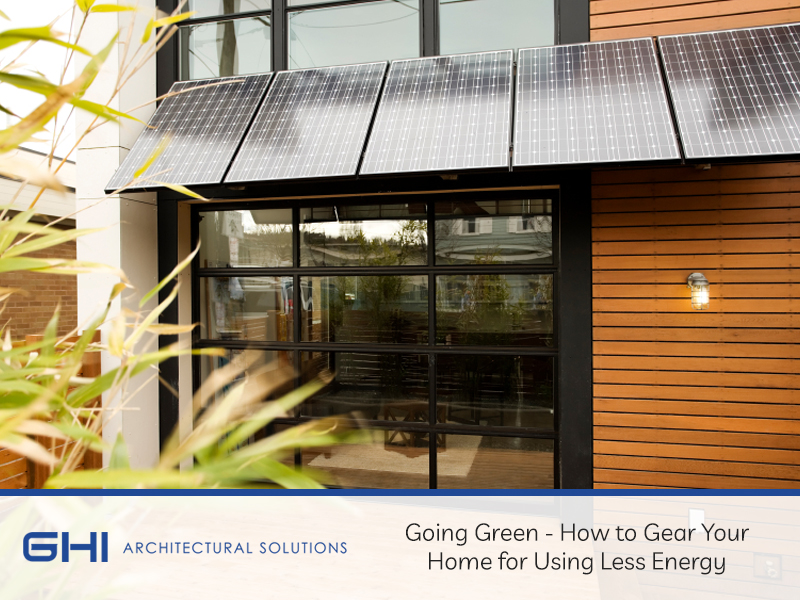Going Green – How to Gear Your Home for Using Less Energy
According to SA Facts, the average South African home uses 900 kWh per month. Incorrect heating and electrical installations can increase the power you use. But turning your home into a sustainable environment can reduce energy costs!
Most of your household energy is spent on basic utilities such as lighting and heating. But there are other elements in your home you can change to reduce your energy costs and carbon footprint even further. Find out how to turn your home into a more energy-efficient environment by reading further.
Plan Going Green From Scratch
Develop a strategy on how you can make your home sustainable by inspecting every area of your home. Write down a list of all the elements that are using too much power and costing you more at the end of the month. Here are the main elements you need to consider when going green:
- Energy: How much electricity does your household use? Write down ways you can reduce using electricity daily such as using energy efficient light bulbs.
- Waste: How much waste does your household produce and where does it come from? Food and non-recyclable products can become waste. You can develop a strategy to minimise waste in your home. For example, creating a compost pile with vegetable offcuts.
- Water: How much water does everyone use when they shower or do the washing? Write down ways you can reduce water consumption.
- Building: How eco-friendly is your house overall? Are there places where heat can escape or areas that retain heat? Look at opportunities to replace components in your home so you can reduce energy costs.
- Food: Where are you sourcing your food? Perhaps you can buy food that was produced by sustainable farms and reduce your meat intake.
Your initiative for going green should be prioritized based on:
- Feasibility
- Impact
- Cost
- Effort
If you’d like tips on how to solve your energy problems then take a look at the list of ideas provided below.

Tips to Reduce Energy Costs
Becoming eco-wise has many benefits such as reducing stress, supporting your environment and reducing energy costs. Going fully green will take some time so it’s important to be patient so you can choose the right products to create a sustainable home.
Sensor Taps and Lights
One of the most affordable ways to reduce energy costs in the home is by installing sensor lights and taps. Sensor lights will switch on when you enter a room and switch off when you leave the area. Sensor taps will only stay on if your hands are under it or you’re standing under a shower.
What’s more, you can install sensor lights all over the home such as in the kitchen, pantry, cupboards and rooms. So for those who forget to switch lights off at night, a sensor can reduce your costs by switching them off and increase the longevity of your lightbulbs.
Going Green with Windows and Doors
If you have the incorrect window and door frames you can lose heat through slight openings. With the proper window installations, you can keep the heat in when it’s cold and out when it’s hot. The best product to use to prevent heat loss or gain in your home is aluminium windows and doors.
Homeowners prefer aluminium doors and windows because they’re naturally energy efficient. Additionally, aluminium is aesthetically appealing and can accommodate a range of sophisticated designs. This material is durable and it’s one of the most cost-effective building materials.
Another way you can reduce energy is to use thick curtains and close them at night to trap heat inside your home. Open your curtains during the day to let the sun naturally heat rooms. With the right window and door installations, you can reduce the use of your air conditioners, heaters and fans.
Install Smarter Devices
Modern technology has made it easier for people to reduce energy costs with smart appliances. For example, smart thermostats can automatically adjust to changing energy needs. Other smart devices can detect the elements in your home that are using too much energy so you can reduce your water, electricity and waste consumption.
Unplug Appliances
Appliances such as toasters, laptops, television sets and microwaves can still consume power when they’re plugged in and not in use. For example, a laptop that’s plugged in can use 4.5 kWh of power per week even when the battery is fully charged.
To save on energy, unplug all the appliances that you’re not using and only plug them in when you need to use them. You should take the plug out of the socket as opposed to switching the plug off because it can still consume energy if the switch is off.
Replace Your Light Bulbs
Some homeowners still buy incandescent lightbulbs because they are cheaper. However, they’ll cost you more in the long run. Incandescent lightbulbs transfer a lot of heat into a building which will prompt you to use air conditioning frequently. Excessive use of air conditioning can raise your energy bill. These lightbulbs also use more energy.
With that being said, consider replacing all your incandescent lightbulbs with fluorescent ones because it will reduce energy by 70%.
Reduce the Use of Your Tumble Dryer
A tumble dryer uses on average 4.5 kHz of power per cycle. Any appliance that produces heat will use up most of the energy in your home. To save on costs and to create a more environmentally friendly environment, hang your washing up to dry on hot summer days.
Get a close horse to hang your washing inside if it’s raining or cloudy outside. Your washing may take longer to dry but you’ll land up saving up to R1965.60 per year if you choose not to use your tumble dryer.
Install Solar Panels
Thousands of households around South Africa have chosen to use solar energy to power their homes. Solar can power devices in your home such as:
- Lighting
- Appliances
- Water pumps
- Motors
Solar energy is safe and 100% environmentally friendly. By installing solar panels on your roof you can experience energy efficiency between 11% and 15%. A solar-powered home can also reduce your energy costs significantly.
Final Thoughts
With inflation on the rise, you want to keep track of the energy you consume so you can reduce your costs. By going green you can also significantly reduce your carbon footprint which will help fight against climate change. Use the information in this article to help you replace all the elements in your home that are using too much energy.

